Telehealth Available
- COVID-19 ADVISORY
-
 Integrated Acupuncture Services, PC
Integrated Acupuncture Services, PC
dba Central Coast Light TherapyLocated in beautiful Avila Village!
6639-A Bay Laurel Place
Building 7
Avila Beach, CA 93424-757805-705-1792
Clinic Days:
(Designated Essential Worker and Business)
Monday - Thursday
11:00 a.m. - 5:00 p.m.
Closed Weekends and Holidays!
Follow Us!
-
- Sign up to receive news and updates and get my free report:“The Top 10 Reasons to Try Acupuncture”

- Testimonials
Dr. Mary is amazing! I was experiencing debilitating lower back issues and electric jolts pain into my left thigh and quad. After each treatment (total of 4) I could feel the relief. I was living on Tylenol/Advil which I knew I had to get off for any real progress. This week was a huge breakthrough. I am sleeping through the nights and moving all day(s) without pain meds. I can feel the healing. I appreciate your knowledge and explanations throughout
... Read more »Good morning Mary,
I had such a good night last night! I went to bed at 10 p.m. fell right asleep, only woke up once at 2 to use the bathroom and went right back to sleep until 6 a.m. I haven’t slept this good in the last two weeks.
Very grateful for all your help and advice!
Mary – I can’t express my gratitude enough for all the care and support you’ve been giving me. It has made all the difference in my well being and health these last few months.
Gratefully yours,
PI was so pleased with how my skin improved after 1 appointment that I had to share a few comments. My skin looked noticeably smoother and more firm, plus had a nice healthy glow to it which my husband had noticed. I’m 53 and my skin is showing many fine lines and beginning to sag in the eyelids, jaw and neck areas. I want to keep a healthy appearance without fillers etc. and feel that facial acupuncture rejuvenation is without
... Read more »You, my friend, are a wizard! I came home yesterday, napped for an hour, but still felt a little tired. Went to bed about 11 pm, and slept the best I have in years! Didn’t even get up to go to the bathroom. The hardest I’ve slept in a very long time. I feel so much better today! Thank you! See you next week!
MM, Los Osos, CA
Hello Mary, Just wanted to let you know today’s TX was the best yet. Low back pain was interrupting my ability to stand this morning and it’s gone. Bruised rib cage is so much better. Completely different afterwords from prior apts. Thank you again. JBought this service to help boost my weight loss as I had run into a stall. Not really knowing much about light therapy I came in hoping I might lose a few pounds and tighten some loose skin around my stomach. Mary gives you a packet guide and tells you to detox and diet in combination with the light therapy to help boost weightloss. I did not do this part of the plan, I have been doing the Keto/Paleo Diet
... Read more »Dr. Mary Mees is wonderful, and I’ve discovered unanticipated benefits from her light therapy. Beyond the 1/2 hour of complete relaxation (and being able to button my pants more easily after her treatment!), my face feels smoother and has a little glow to it. Most impressive though -and totally unexpected, I went in for the regular treatment with a shoulder injury and the light therapy completely relieved it. This is some good stuff, Man!!
Mary is wonderful. She’s such a delight and the treatment really works too! I had 4 sessions before my wedding day and they made such a difference. I felt better and looked better.
Dr. Mary is a beautiful spirit, so full of knowledge and skill. Her facility is a beautiful, peaceful atmosphere and also private. I have had many unexpected benefits from the light therapy as well as her sharing her wisdom. I am grateful for her and her practice.
-
Latest Articles:
- • 10 Family-Friendly Activities Perfect for Spring •
- • 3 Easy Spring Dinner Ideas for a Fresh and Flavorful Season •
- • 5 Tips to Boost Your Spring Wellness Routine •
- Find out how Cosmetic Acupuncture and Microneedling can help you achieve more radiant, youthful skin!
Health WellNews
Traditional Chinese Medicine And Fall
As the seasons shift from summer to fall, so does the Qi (or energy) in the universe as well as within our bodies. Autumn is represented by the metal element, which includes the lung and large intestine meridians. The emotion often associated with the lung meridian is sadness and grief. This is the time of year to let go, to finish projects which you have not yet completed and embrace the coming of a new season.
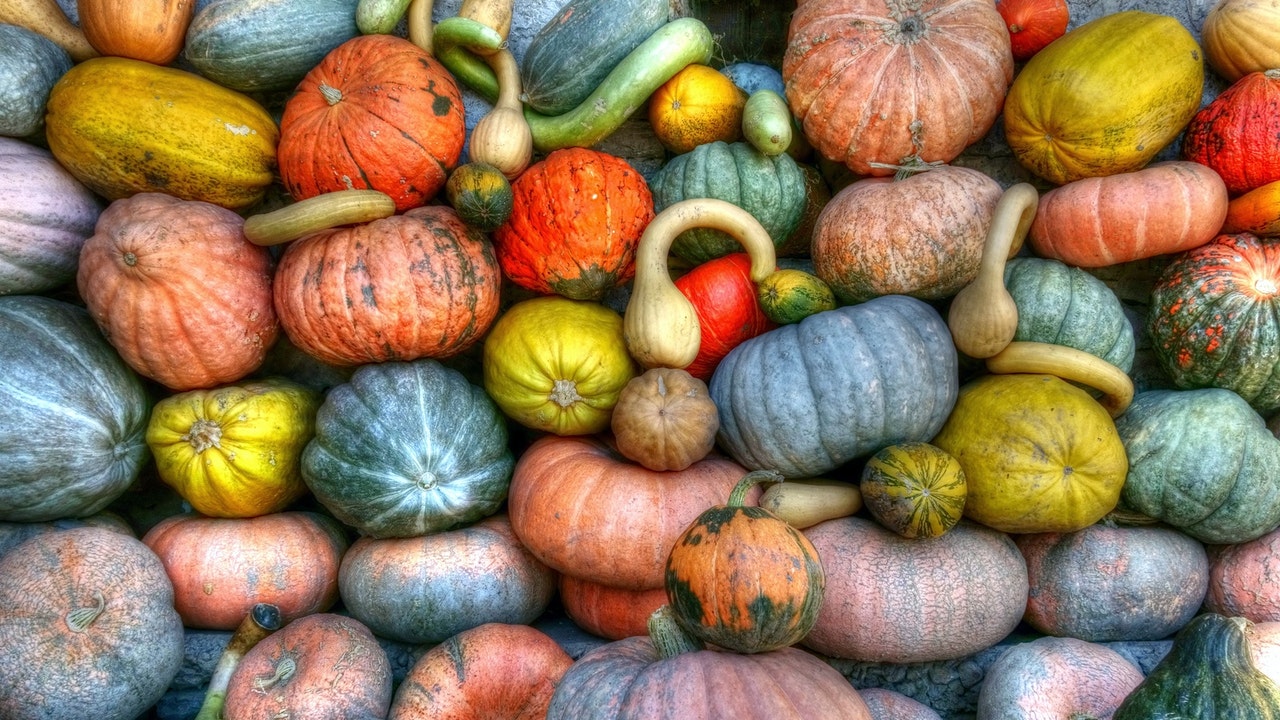
One easy way to benefit the lung organ is breathing exercises. Practice breathing in through your nose and focus on filling your lungs deep with your breath, down into your abdomen. Hold that breath for a count of five and slowly exhale out of your mouth trying to get all of your breath exhaled from the very bottom of the lungs. You can repeat this several times as well as a few times throughout the day. Not only will this help build your lung Qi, it will also relax and center you. This is important in the midsts of our busy lives. Good sleep habits are also essential for health, wellbeing as well as the lung’s Qi. Early to bed and early to rise will help invigorate you and set each day off full steam ahead.
In summertime many people indulge in lots of raw and fresh fruits and vegetables. For our bodies, digesting these raw foods can use up a lot of our Qi, but in the summer the heat of the summer can balance some of this as the raw foods have a more cooling aspect to them. As we transition to autumn, it is also a time to transition our diet and move towards more warming foods. Soups, stews, warm beverages, cooked fruits and vegetables. Fall can be abundant with amazing fresh produce that is seasonally appropriate– pears, garlic, leeks, beans, apples, onions, ginger and leafy greens.
The lungs are also integral for our Wei Qi, which is our protective Qi, akin to the immune system. As the lungs are connected to the nose and the mouth, it is important to be mindful of this. Using a neti pot can help rinse out the nasal and sinus passages. Using a warm salt water mixture will help reduce your chances of colds and allergies. As the temperature shifts, so should our attire. Keep your body warm and appropriately covered, including a scarf around the neck as needed. It is a great time of year to go for long walks and hikes in nature, but keep yourself well prepared to keep your body strong.
The Metal Element
Traditional Chinese Medicine dates back thousands of years and has helped people all over the world remain and regain health and well-being. Traditional Chinese Medicine, or TCM, most likely predates written history. But the first writings of this medical system appear in China during the Shang Dynasty in 1766 B.C. The theory behind TCM however, is not just Chinese in origin and is heavily rooted in traditional Eastern philosophy. The concept of the five elements that are now used in TCM probably began with the ancient Chinese calendar where five types of energies were assigned to different days, months and years. These five elements were associated with the solstices and equinoxes in an effort to help farmers plan ahead. The five elements are wood, fire, earth, metal and water.

Metal is the element associated with the season of fall. The metal element is thought to be about connection and purity. During the autumn months, things are winding down and life is preparing for hibernation. Autumn is the time of year when we tend to let go of the things that no longer serve us. Just as the leaves fall from the trees in the autumn months, so too should we let go of the things, physical or mental, that bog us down. Fall is a good time to detox the body or clean out the closets of unwanted items.
Each element in TCM is also closely affiliated with two organs and their energetic meridians. Metal is the element of the lungs and the large intestine. The large intestine functions to “let go” of toxins and waste products our bodies no longer need to function. The lungs enable us to take in the crisp pure air of the autumn months, which helps to nourish and enrich our blood. The lungs and the large intestine work as a team to keep the body healthy. One gets rid of waste, while the other brings in nourishment.
When the metal element is out of balance, we may experience allergies, asthma, wheezing, colds, coughing, grief, sadness, skin rashes, eczema, diarrhea or constipation. All of these can be due to either excesses or deficiencies within the lung and large intestine meridians. One way to counter a breakdown in the system is by eating foods color specific to the two energetic meridians. Things like onions, turnips, cauliflower, egg whites, apples, potatoes and pears are all good examples of white foods that can help boost or tonify the energy of the lung and large intestine meridians.
Deep breathing is also something that can be done daily to help keep the metal element balanced. This practice can help strengthen the lungs and boost immunity in the body. Deep breathing can be somewhat meditative, which can help calm the mind too. When practicing deep breathing, the focus should be on the abdomen. The abdomen should expand when inhaling and it should deflate when exhaling. This is somewhat opposite of what most people do when they breathe. But when watching an infant breathe, it is easy to see this pattern. Deep breathing can be done almost anywhere and it can help tremendously when there is added stress.
Lastly, consider getting acupuncture to balance out the metal element. Acupuncture has been shown to be effective at treating many lung and large intestinal issues. Acupuncture works with the body to balance energy, remove blockages and get things flowing properly throughout the whole system. A few treatments can bring relief from a lifetime of discomfort.
How to Fight the Common Cold with TCM
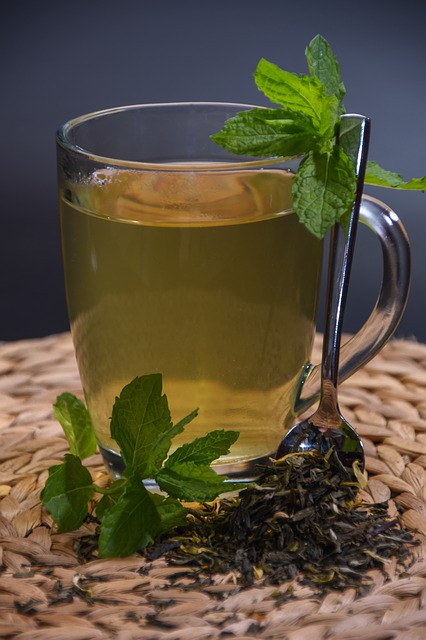 Cold and flu season usually occurs during the winter months. But the common cold doesn’t follow a schedule. The common cold can happen at any time of the year. It affects nearly three million people in the United States every year. Symptoms can include a runny nose, sneezing, congestion, coughing, sinus pressure, watery eyes, fatigue and muscle aches. The common cold is usually caused by a virus and unfortunately, Western medicine has no real cure for this ailment.
Cold and flu season usually occurs during the winter months. But the common cold doesn’t follow a schedule. The common cold can happen at any time of the year. It affects nearly three million people in the United States every year. Symptoms can include a runny nose, sneezing, congestion, coughing, sinus pressure, watery eyes, fatigue and muscle aches. The common cold is usually caused by a virus and unfortunately, Western medicine has no real cure for this ailment.
Traditional Chinese Medicine (TCM) is a medical system that approaches Western ailments from a very different angle though. In TCM, wind is one of the six external pathogens that can invade the body and produce symptoms. The external pathogens responsible for the cold are seen as invasions of wind. The body is protected by something known as the Wei Qi (defensive qi, pronounced “way chee”). The Wei Qi is comparable to the immune system in Western medicine and it acts as the first line of defense when the body is under attack from external pathogens. If the Wei Qi is strong, the body is capable of fighting off the cold virus. The Wei Qi keeps the pores of the skin closed and prevents wind from entering. Extreme stress, lack of sleep and a poor diet can all play into how strong the body’s Wei Qi truly is and how well it performs.
Chinese botanical medications and certain TCM modalities like acupuncture, cupping and gua sha can all be utilized when the body breaks down and a wind pathogen invades. Chinese herbs have anti-viral and antibacterial properties that help ward off the pathogens. Some herbs also have diaphoretic properties, which induce sweating that expels the pathogens from the system. Wind can also carry other pathogens with it that can exacerbate the infection. So the cold can present as either a wind-cold or a wind-heat invasion. Obviously, these are treated differently based on the symptoms.
A wind-cold invasion tends to be the more mild of the two and can be treated with acupuncture, gua sha or cupping. This is considered the beginning stages of a cold as there are rarely any heat symptoms present. Because the pathogen is still mostly on the surface of the skin, gua sha or cupping may be the first line of defense. Both gua sha and cupping pull out toxins from the muscles and the blood and bring oxygen-rich blood into those areas decreasing the time that it takes for the body to heal. Acupuncture can also be a good tool to use when fighting a wind-cold attack. Acupuncture stimulates the immune system and helps to balance the hormones, which can shorten the length of time a person may feel ill. The other type of cold is the wind-heat invasion. Wind-heat invasions attack quickly and manifest just like wind-cold invasions, but they also have fevers as one of their primary symptoms. Wind-heat invasions should be treated with acupuncture and herbs only, as gua sha and cupping can sometimes push the pathogen deeper into the tissues extending the length of the cold.
With both types of colds, plenty of rest and water are essential. Mint and chrysanthemum teas are also highly recommended. Spicy, greasy or fried foods should be avoided, as should sugar because these foods can create mucus or exacerbate the condition. And regardless of the type of cold, a licensed acupuncturist will be able to help you kick it in less time than normal.
Acupuncture for Weight Loss
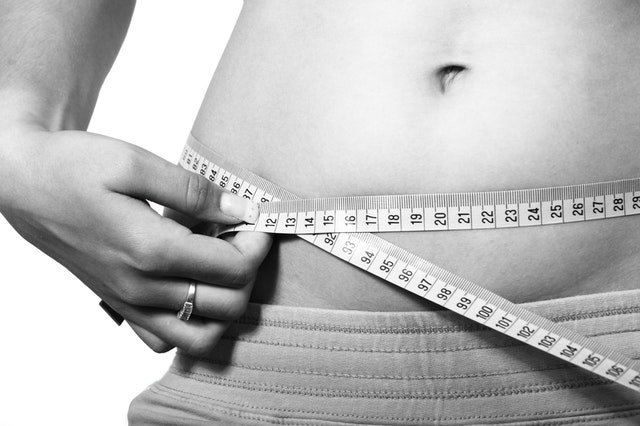 An article published in the Journal of Acupuncture and Meridian Studies, substantiates the usage of acupuncture and traditional Chinese herbal formulations can help in the treatment of obesity and weight loss. The article reviewed four clinical studies and 16 animal studies on the effects of Traditional Chinese Medicine (TCM) for treating obesity. There were different methods, but the results were ultimately the same. Obesity can be a result of total body inflammation or hormonal imbalances, and because of this, all the studies that were reviewed, had different approaches for treating the disease. All of the studies confirmed obesity can be managed utilizing Traditional Chinese Medicine techniques.
An article published in the Journal of Acupuncture and Meridian Studies, substantiates the usage of acupuncture and traditional Chinese herbal formulations can help in the treatment of obesity and weight loss. The article reviewed four clinical studies and 16 animal studies on the effects of Traditional Chinese Medicine (TCM) for treating obesity. There were different methods, but the results were ultimately the same. Obesity can be a result of total body inflammation or hormonal imbalances, and because of this, all the studies that were reviewed, had different approaches for treating the disease. All of the studies confirmed obesity can be managed utilizing Traditional Chinese Medicine techniques.
Obesity has become an epidemic in the United States. As many as one quarter of all Americans are considered overweight. And because of this, nearly $33 billion will be spent annually on weight loss programs. However, almost 85 percent of those trying to lose weight, will fail. There are many reasons why Americans are getting larger waistlines, but ultimately, the burden falls upon the individual. There are methods that can help people lose pounds and maintain a healthy weight though.
TCM is a non-invasive, safe and effective method for helping with weight loss. Unfortunately, a vast majority of people tend to look for the “quick fix” and this is definitely not what TCM provides. But, if a person is willing to take control and be held accountable for their actions and decisions, then TCM can be quite helpful with regards to shedding pounds.
Multiple studies have shown when TCM modalities, such as acupuncture and herbal formulas, are combined with traditional methods of weight loss, the patients actually lose more weight. TCM views the body and how it functions differently than Western medicine. Everything in TCM is based upon the fact that every cell in the human body is a form of energy. When there is an imbalance of energies throughout the body, then disease or illness may arise. Obesity is a disease that requires balancing. When it comes to weight loss, there are two or three main areas that TCM practitioners focus on, the spleen, liver and kidney meridians.
The three areas that focus on weight loss in TCM, the spleen, liver and kidney meridians, are the powerhouses of the body. The kidney meridian equates to the endocrine system and this is treated to reduce water retention and to rebalance hormone levels. The spleen meridian is targeted to regulate sugar metabolism. The liver meridian is treated to reduce stress, which can lead to binge eating and other unhealthy eating habits. Increased levels of stress can also deplete the hormones that are responsible for metabolism in the body.
Acupuncture for weight loss is not a silver bullet and traditional methods should be used in conjunction with acupuncture. Obviously monitoring the diet and getting proper exercise and rest are all crucial when trying to lose weight. But if all these things are done together, losing weight should not be extremely difficult. It will still take time, but it can be achieved.
Seven Ways to Protect Against Skin Cancer
 Skin cancer can be deadly if you let it manifest. The leading cause of skin cancer is overexposure to the sun. Fortunately, there are a lot of ways we can prevent against skin cancer. Check out these tips that you should be practicing to avoid getting skin cancer.
Skin cancer can be deadly if you let it manifest. The leading cause of skin cancer is overexposure to the sun. Fortunately, there are a lot of ways we can prevent against skin cancer. Check out these tips that you should be practicing to avoid getting skin cancer.
- Sunscreen. Sunscreen is integral to preventing skin cancer. When you are going outside in the sun for extended periods of time you should make sure to apply a good sunscreen. Avoid spray types of sunscreen and use lotion types, also, make sure to use a sunscreen at least 40 SPF or above.
- Dermatology check-ups. Schedule annual dermatology check-ups just to ensure you do not have skin cancer or another problem with your skin.
- Avoid sunbathing. I know, I know, this may be one of the sole reasons you go to the beach. But, it has been proven that sunbathing is bad for you…even if you have applied sunscreen! Ultraviolet rays are harmful to the skin and it is important to protect against them however possible.
- Say bye-bye to the tanning salon. Radiation is terrible for our skin, and radiation is found aplenty at tanning salons, it has even been shown that some tanning beds produce radiation stronger than the sun! So think about that the next time you decide to go into a tanning bed… just don’t do it!
- Wear protective clothing. It is one thing to apply sunscreen, but you should also combo that with protective clothing. Wear hats, sunglasses and garments with a ultraviolet protection factor rating.
- Use essential oils. Use lemon, sappan wood and mate leaf essential oils in order to encourage healing and repair of damaged skin in order to prevent potential patterns of skin cancer.
- Detoxify your liver and kidneys. Your liver and kidneys are major players in converting vitamin D from the sunlight and the food you eat. One way to guarantee you are consuming enough vitamin D is to drink milk thistle tea or taking a milk thistle tea supplement.
Three Ways to Protect Your Kids From the Sun
Skin cancer is no joke. Sunburns received as a child can end up resulting in skin cancer as an adult. The good thing is both sunburns and skin cancer are easily preventable, you just need to take action against the sun’s powerful ultraviolet rays. Follow these tips in order to protect your children from the power of the sun.
- Choose the right sunscreen. Choosing the right sunscreen is very important, you want to make sure you are selecting a sunscreen that is water-resistant and at least 40 SPF. Also choose a lotion type of sunblock as compared to the spray kind. Spray sunscreens can miss spots sometimes and don’t always guarantee protection.
- Dress appropriately. Make sure to dress the right way when you will be experiencing lots of exposure to the sun. Wear hats, sunglasses and garments that have a ultraviolet protection factor rating.
- Reapply! Reapply! Reapply! Make sure to always reapply sunscreen during your outings in the sun. This is the most important step, if you only put sunscreen on initially you could still get burned. So avoid this, and make sure to reapply.
The Many Dimensions of the Heart
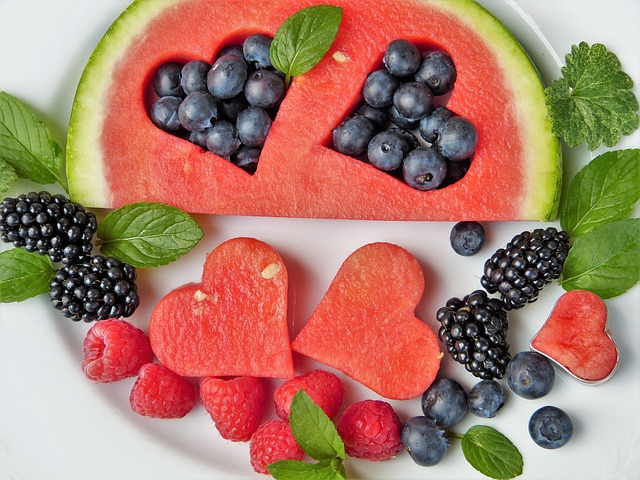 The heart is an energetic system we often treat in Traditional Chinese Medicine. According to Chinese Medicine theory, there are many systems of energy within the body. Each of these systems corresponds to certain physiological and psychological functions. So when we talk about the heart, the lungs, the liver. However, when we are speaking about Chinese Medicine organs, we are not talking about the physical organ sitting in your body, but rather the energetic manifestations of a particular system in the physical, mental, emotional and spiritual realms.
The heart is an energetic system we often treat in Traditional Chinese Medicine. According to Chinese Medicine theory, there are many systems of energy within the body. Each of these systems corresponds to certain physiological and psychological functions. So when we talk about the heart, the lungs, the liver. However, when we are speaking about Chinese Medicine organs, we are not talking about the physical organ sitting in your body, but rather the energetic manifestations of a particular system in the physical, mental, emotional and spiritual realms.
The heart is an incredibly important energy system in Chinese medicine, often said to be the emperor of all the other energy systems. It is related to the fire element, which is the universal energy of summer.
On a physical level, the heart is responsible for pumping blood through our body, just as it is in allopathic medicine. It controls the health and vitality of the blood vessels, and also controls sweating, the tongue and speech. But perhaps the most important role of the heart in Chinese medicine is that it houses the Shen, or spirit.
The Shen in Chinese Medicine is referred to as one of the three treasures of the body, and it encompasses consciousness, the emotions, mental acuity and thought, as well as the ability to process incoming sensory information. Each organ system in Chinese medicine is related to one aspect of the spirit (such as intellect, willpower or instinct) – but the Shen is the most important, as it governs all the other aspects. Prolonged emotional upheaval, mental illness, personality disorders, emotional imbalance, processing disorders and sensory disorders all are manifestations of a disturbed, ungrounded or weakened Shen.
The emotion associated with the heart is joy. This means that joy nourishes the heart, but excessive joy (ie, mania) is a symptom of an imbalance in this system.
The heart is all about the very act of being alive – from the physical heart beating in our chest, to the flow of blood through our veins, to our mental ability to stay present and focused, and our emotional selves being whole and complete. It is the energy of summertime – abundant, hot and lively.
Nourish the Heart through Food
The color associated with the heart is red, and the heart is nourished through red foods, such as cherries, strawberries and kidney beans. Being closely associated with the blood, it is also nourished by blood-tonifying foods such as organ meats, lean red meat and dark leafy greens. The heart is closely tied to appreciation of beauty and aesthetics, so the heart system is also nourished by food for which care has been given to present artfully, with beauty and grace, and a wide array of colors on one plate. Again, the heart is associated with summertime, so think of the abundance of fruits and vegetables available that time of year, and try to reflect that energy in your food choices.
Nourish the Heart through your habits The heart is nourished through activities that bring you cheer and joy. Nourishing the heart is about celebrating that which you love in the world – people, places and ideals. As the heart governs our relationships with other human beings, it is nurtured by feeling connected to those that we love. Reach out to friends and family, forge new bridges and strengthen lasting bonds. The heart is also nourished through beauty – take time to appreciate the beauty of your natural surroundings, as well as music, poetry, art and dance. Lastly, the heart is nurtured by ritual. This can be a long-standing religious or cultural ritual, or one that you create for yourself. Some examples of heart-healthy rituals include writing down five things you are grateful for each night, incorporating some sort of gentle exercise during each morning, practicing 10 minutes of sitting meditation each day, or grab a coloring book and start coloring!
Traditional Chinese Medicine and Spring
Spring is generally regarded as a happy season, especially for those that live in areas where winter is cold and dark. Spring brings with it longer days, more sunshine, the rebirth of plants and more activity. But for many, the months of spring can also bring irritability, anxiety, sinus issues, allergy flare-ups and even colds.
Traditional Chinese Medicine has been around for nearly 3,000 years, which gives the medical system, as a whole, a lot of credibility. TCM classifies things in many different ways. There are five seasonal associations in TCM – winter, spring, summer, late summer and fall. Each season has its own unique set of properties and associations. Spring is associated with the wood element. The wood element governs the liver and the gallbladder and their energetic pathways in TCM. The five seasons and their corresponding elements interact with one another daily, creating balance and harmony or complete chaos within the body.
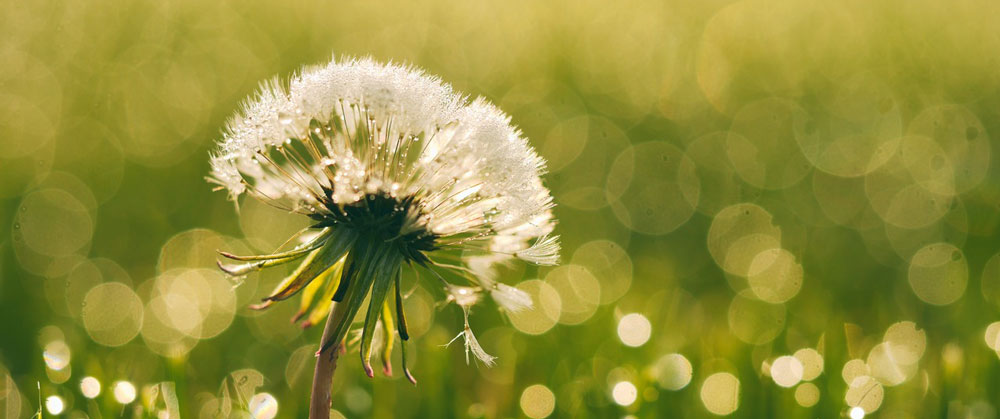
The season of spring is a time of expansive movement and growth. Spring is a time of creativity and planning. Since the liver and gallbladder are associated with the tendons and are responsible for the smooth flow of energy and blood throughout the body, our daily activities should reflect this. Being more active and spending more time outside can be great ways to strengthen the liver and gallbladder energies during the months of spring. We should imitate the budding trees and flowers and allow ourselves to grow and reach for bigger and better goals during the spring.
The color green is the color of spring in TCM. During these months, fresh greens are abundant. It is highly recommended that we incorporate more fresh greens into our daily diets. Greens have been shown to be very beneficial for helping the liver do its job, detoxifying the blood. Dandelion greens, in particular, are a good source for detoxification, which ultimately strengthens the liver and gallbladder meridians.
It is also recommended to avoid excessive stimulants during the spring months. Things like coffee are considered expansive and energizing, which can be somewhat helpful during the cold winter months. But during the spring, when life is abounding, excess energy can actually be harmful to the body. It can create headaches, insomnia, anger and more.
When a person is completely balanced, transitioning from one season to another is not such a big deal. However, knowing what elemental type you are can also be very beneficial in determining how you will react to each passing season. For instance, a person who has a wood element constitution, may experience anger during the spring. This is because the wood element is already closely associated with the emotion of anger and spring brings added stimuli that can trigger fits of rage.
One way to keep the body balanced is through acupuncture and TCM. The body is designed to maintain proper balance, but we tend to not pay attention to the warning signs until we experience pain or illness. Getting regular acupuncture treatments can work as preventive medicine, providing harmony throughout every season of the year.
If you experience feelings of anxiety, anger or even self-loathing, acupuncture can help. It can also help with those seasonal allergies that might flare up. Acupuncture is a wonderful way to maintain health and balance all year long. Be sure to find a fully licensed acupuncturist in your area, so you can enjoy spring without any emotional or physical impairments.
Ways for a Healthy Brain
The second week of March is Brain Awareness Week. This is a perfect time to explore ways to keep your noggin working and healthy. Below are easy, simple ways to keep your brain in good shape.
A healthy diet is a healthy mind
There are many reasons to keep a healthy lifestyle and feed your body with foods that make you feel and perform your best. Diets that are low in saturated fats and cholesterol and higher in omega-3 fatty acids have been shown to promote brain health and protect brain cells. Taking a fish oil supplement with DHA or eating fish such as salmon can help improve brain development at any age. DHA, a type of omega-3, may also help prevent certain neurological disorders. Vitamin E and lutein can also help brain health. Incorporate leafy greens such as spinach and kale into your lunch or dinners.
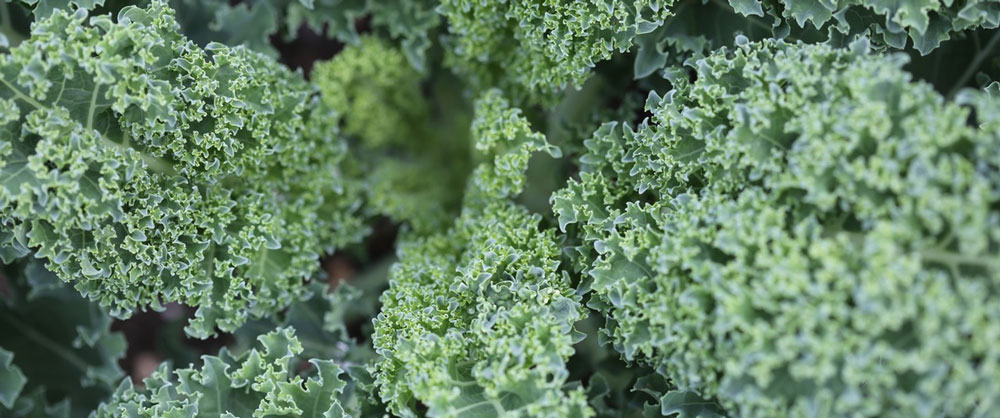
Keep your brain stimulated
At any age, brain exercises are a great thing to get into the habit of. Keeping your brain stimulated can help retain your memory as you get older as well as your capability to learn new skills. The brain is never done learning. Exercises like reading, crosswords, number problems and games like sudoku can help keep your brain stay active and working. If you find yourself experiencing chronic stress, practice daily meditation for as little as five minutes a day to help reduce inflammation and support immune health, which are both controlled by the same area of the brain.
Socialize
Keeping in touch with friends and family and continuously working on building relationships helps your emotional state as well as your physical health. Surround yourself with people who challenge you, understand you and keep a positive tone. Join organizations or clubs you are interested in and make new connections. Feeling connected to others is always important for your mental wellbeing.
Quit the bad habits
If you smoke, now is never a better time to quit. Consuming an excess in substances such as alcohol, cigarettes and other drugs can lower cognitive processes and decrease overall functioning and health.
Acupuncture
In Traditional Chinese Medicine it is believed that the spleen, kidney and heart organs all impact mental capacity and brain activity. These organs influence memory, concentration and recall. When one of these organs is experiencing deficiency or an imbalance, our brain can not function to its fullest. Acupuncture addresses the organs with specific points on the body to return the body back to balance and health.
Spring Acupuncture Tips to Keep You Healthy, Happy and Flexible
Spring is a happy time. Bunnies hop about. Flowers emerge in long forgotten corners of your garden. The birds return and sing so loudly they wake you in the morning.
This is not a time to be angry.
But according to Traditional Chinese Medicine, being angry is exactly what you can expect if you don’t balance your wood element.
In TCM, spring is represented by the element wood. Wood represents birth and newness, the time for fresh ideas and new starts. Unsurprisingly, its color is green like the fresh growth of spring.
Wood governs your spine, joints, muscles, ligaments and tendons. A wood imbalance can lead to spinal problems, poor flexibility or arthritis. Wood also governs your eyes.
But most important for your mood, wood governs your liver. Your liver is responsible for the smooth flow of Qi (energy) and smooth flowing Qi means health and vitality. The emotion associated with your liver is anger. If your liver is imbalanced your Qi will be disrupted and you’ll be angry.
Healthy (and happy) spring acupuncture practices mean balancing your wood element and caring for your liver.
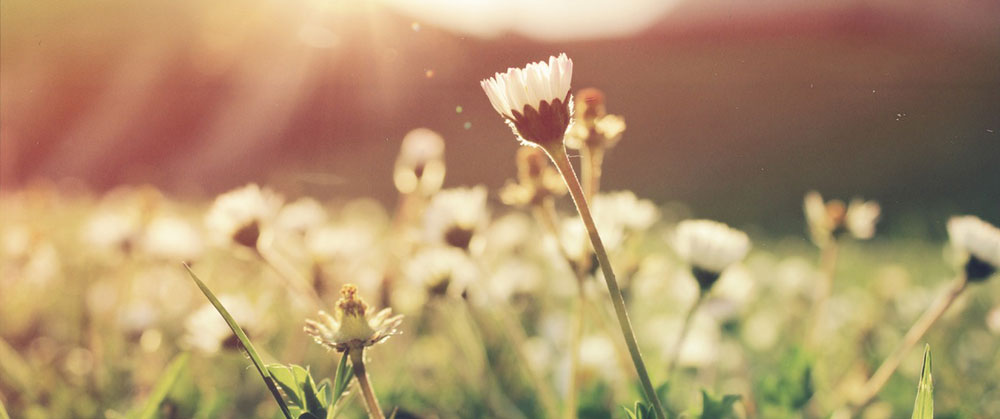
Healthy Spring Acupuncture Practices
Try these spring acupuncture recommendations, to keep your wood balanced and your liver healthy.
Cleanse. Cleaning your colon releases accumulated toxins, undigested food, parasites and fungi. With a clean colon your digestion is more efficient and your body is healthier.
Detox your liver. Reduce or eliminate alcohol or drugs that are toxic to your liver. Consider a detox that specifically targets your liver. Call me if you need suggestions.
Stretch. Start or recommit to a healthy stretching routine. Try yoga, Tai Chi, Qi Gong, or other exercises that move, loosen and flex your joints.
Exercise your eyes. Massage your face, especially around your eyes. Roll your eyes and move them in figure 8s. Practice focusing on distant objects and then focusing on close objects in quick succession. Put time limits on your computer sessions. These exercises strengthen your eyes and can improve your eyesight.
Control your anger. Create a healthy anger management plan. Journal, meditate or get counseling. Put limits on stressful situations. Find activities that refocus your anger in healthy ways.
Healthy Spring Acupuncture Diet
Follow these tips for a healthy spring diet that supports your liver.
Eat light. Overeating taxes your liver.
Eat greens. Sprouts, wheatgrass, spinach, kale and dandelions are particularly good foods in the spring.
Eat sour? Sour is the flavor associated with spring, however sour flavors are only recommended for certain constitutions. Instead of dousing your greens with vinegar or lemon juice dressings, consult with me to find out what flavors are best for you.
Drink milk thistle tea. Milk thistle detoxes your liver.
Season your food. Pungent spices like basil, fennel, marjoram, rosemary, caraway, dill and bay leaf are excellent for spring cooking—and they taste good.
By keeping your wood balanced and your liver healthy you will be happy. You’ll feel vital, flexible and clear. If you have questions about healthy spring acupuncture practices feel free to call me for recommendations.
Traditional Chinese Medicine and the Season of Winter
The ancient Chinese developed a system of medicine thousands of years ago and that system is still used around the world today. This system incorporates more than just medicine though. Traditional Chinese Medicine practitioners also educate their patients on how the seasons affect the body and ways to stay healthy. This will ultimately lead to a long, healthy life.
Traditional Chinese Medicine teaches that humans should live in harmony with the seasons. According to TCM there are five seasons – winter, spring, summer, late summer and fall. Each season has many associations that help us change our habits allowing for a more balanced mind and body. When these systems were being developed, people were living in harmony with nature. People rose with the sun, ate what was available during the different seasons and they were much more aware of their natural environment. What to wear, when to wake up, when to go to sleep and what activities to engage in were all dependent on the weather and the environment. Because of this, people were capable of staying healthy throughout the year and their immune and organ systems were strong enough to ward off disease.
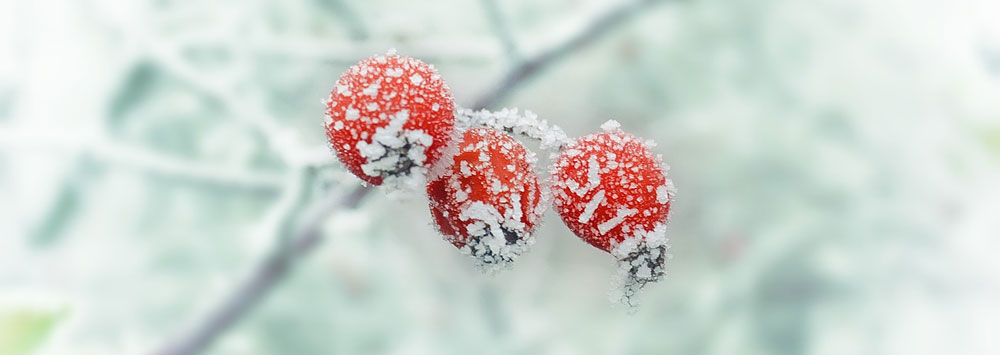
In this system, the season of winter is a time of repair and rejuvenation. Winter is associated with the kidneys, which hold the body’s fundamental energies. Harmonizing with the seasons will help the body stay healthy and prepared for each succeeding season. Rest is important for revitalizing the kidneys and this is why some animals hibernate during the winter months. Winter is also a really good time to turn inward and do some reflection. This is why practices like tai chi, qi gong and yoga can be very beneficial during the winter season. These practices help us connect to our inner selves, while supporting the kidney energy. These practices help relax the mind and calm our emotions.
Winter is also associated with ears in this system. Our ability to hear is related to the health of our kidneys. The stillness of the winter months allows us to hear the world more clearly and forces us to slow down. The bones are also associated with winter, which means that it is important to tonify and heal any orthopedic problems during these months.
There are many foods that are beneficial to eat during the winter season. These foods should be the ones that naturally grow during this season. Food items like squash, potatoes, root vegetables, winter greens, cabbage, carrots, apples, pears and mushrooms are all examples of things that should be incorporated into the daily diet during the winter months. Also warming foods such as soups and bone broth are highly recommended. There are foods that specifically target and nourish the kidneys too. These foods include black beans, kidney beans, lamb, walnuts, chicken, dark leafy greens and black sesame seeds. It is recommended to cook items for longer periods of time, on lower heat and with less water, as the food should be warming as well as nourishing.
When we align ourselves with the natural processes of life and the seasons, our bodies will adjust and perform optimally, just as they are intended to. This is how we are supposed to live and can quite possibly be why there is so much more disease now than in the past. So to be the healthiest you possible, learning to take cues from the seasons might just be the best suggestion ever.
3 Indicators You Need a Tune-Up
Here is a list of three signs indicating you should immediately come in for an acupuncture tune-up. Both your body and mind will thank you for getting tuned up as soon as possible.
Chronic Back and Neck Pain
If you experience chronic back and neck pain, it is highly recommended to come in and receive acupuncture. Back pain is one of the leading reasons people seek out acupuncture. So if your neck or back are bothering you, it is time you sought out acupuncture.
Trouble Sleeping
Acupuncture is a great cure for those who have trouble sleeping. If you experience restlessness, tiredness or overall fatigue you should try acupuncture. Acupuncture improves the body’s functions and promotes overall health due to the needling of specific acupuncture points on the body. Try acupuncture to improve the sleep problems you are currently experiencing.
Digestive Problems
A healthy digestive system is important to living an active, healthy and worry-free lifestyle. In order to maintain a high-functioning digestive system it is important that the whole body has a smooth and consistent flow of energy. Acupuncture will help regulate this and promote a smooth flow throughout the entire body, in turn alleviating the symptoms of poor digestive function.


